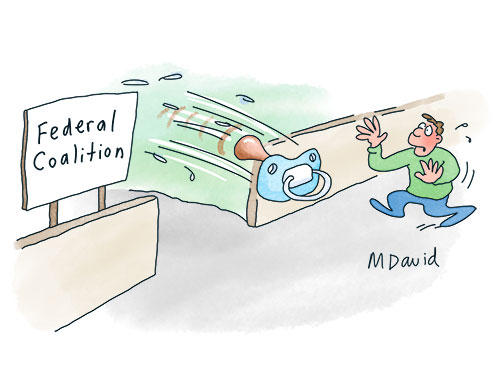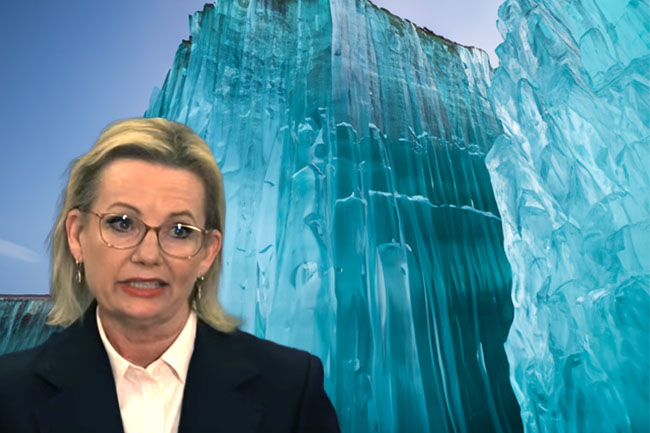As details about the recent AFP media raids begin to come to light, Government accountability is retreating further into the shadows.
Yesterday morning (7 August), the head of Australia’s spy agencies, Nick Warner, made a rare public appearance.
THE SPOOKS COME OUT
Addressing the Parliamentary Joint Committee on Intelligence and Security, Mr Warner said:
… ASIO works with foreign partners to support the disruption of terrorism-related threats…
… Put simply, if those partners do not trust Australian intelligence agencies to keep their intelligence information secret, they will not share it.
The Department of Home Affairs has also ‘urged the inquiry to tread carefully in recommending reforms'.
The subject being debated was the ‘impact of the exercise of law enforcement and intelligence powers on the freedom of the press’.
The ABC and other mainstream media organisations have been jolted into action following the recent AFP media raids and have made submissions to the Parliamentary Inquiry, ‘calling for the decriminalisation of journalism and public interest whistleblowing.’
Warren clearly needed only to convey the Government’s message: we can spy on whomever we want, whenever we want.
CONE OF SILENCE
For those who do speak out, the ramifications have never been more abundantly clear than in the treatment of former spy, turned whistle-blower, Witness K and his lawyer Bernard Collaery.
According to his lawyer, after “six years of seclusion, harassment and questioning”, Witness K will plead guilty to breaching secrecy laws after exposing Australia’s spying on Timor-Leste.
Collaery revealed yesterday (7 August) that an open court process was denied to Witness K because it would reveal that his disclosures:
“were totally unrelated to national security concerns.”
Let’s put this level of high national security into perspective. If anyone wishes to blow the whistle on this Government, it’s a breach of national security. If, however, the Government wants to uncover info about, well, anyone, then it’s time for super “security measures”.
SUPER IMPORTANT SPY BUSINESS
A new state-of-the-art digital forensic lab has been launched by the Federal Government. High-tech and impressive, you may think. We can now catch the likes of organised crime, such as the machinations behind the Crown Casino scandal. Or discover the illegal tax hide-outs of multinational corporations, right?
Wrong. The digital forensic lab has been developed to track the movements of any so-called “dole bludgers”. Yes, taking that exorbitant $277.85 weekly Newstart allowance and then “having a great time”, instead of spending every waking minute preparing for jobs, will now be subject to the collection of “digital evidence”, including encrypted phones. Of course, this assumes anyone on $40 a day can afford a phone or digital device of any kind.
Brian Hay, welfare fraud squad chief, said of the new surveillance equipment:
If you’re saying you actually went to job interviews in location A, B and C but your devices say you were in Cairns or Port Douglas having a great time, at the tax payers expense, because you defrauded them of some money, … you might have some difficult questions to answer.
SUPREME OVERLORD DUTTON
Of course, these various examples of the slow but persistent hand of a police state have a common denominator: one man, the man for whom a super agency was created, Home Affairs Minister Peter Dutton.
And has Dutton been hard at work ensuring our national security? Well, his latest hobby seems to be targeting “extreme” online hate speech in the wake of the latest tragic mass shooting in the USA. Sounds reasonable, doesn’t it? Hate speech should not be tolerated, after all.
Until we start to question who decides what is extreme and whether that power should lie with an individual who has said compassion must not be shown towards refugees. That Melbournians were afraid to go out because of African gangs.
And this jewel of philanthropy from Dutton's maiden speech to Parliament:
“The silent majority, the forgotten people – or the aspirational voters of our generation, as some like to term them – are fed up with bodies like the Civil Liberties Council and the Refugee Action Collective, and certainly the dictatorship of the trade union movement.”
But just in case you’re thinking we may not be getting our money’s worth from the Home Affairs Department, a $5 million review of the super agency’s performance was conducted in the last financial year. The resultant one-page report was presented to Parliament, so there’s obviously nothing to see here.
In the words of Labor Senator Kristina Keneally:
This is a $5 million piece of paper. This is either the single most expensive piece of paper in the history of this chamber or a blatant rejection of the will of the Senate by a minister who is allergic to scrutiny. The community has the right to know how one of our largest government departments – and one that is so fundamental to our national security – is being administered.
Unfortunately, while the community may have a right to know about the activities conducted in secret by this Coalition Government, it is becoming increasingly unlikely that it will be told much via public interest journalism, or, through the efforts of courageous whistle-blowers.
This is only half the story! The other part of this editorial may be read in the IA members-only area. It takes less a minute to subscribe to IA and costs as little as $5 a month, or $50 a year — a small sum for superb journalism and lots of extras.
You can follow executive editor Michelle Pini on Twitter @vmp9. Follow Independent Australia on Twitter at @independentaus and on Facebook HERE.
 This work is licensed under a Creative Commons Attribution-NonCommercial-NoDerivs 3.0 Australia License
This work is licensed under a Creative Commons Attribution-NonCommercial-NoDerivs 3.0 Australia License
Support independent journalism Subscribe to IA.












